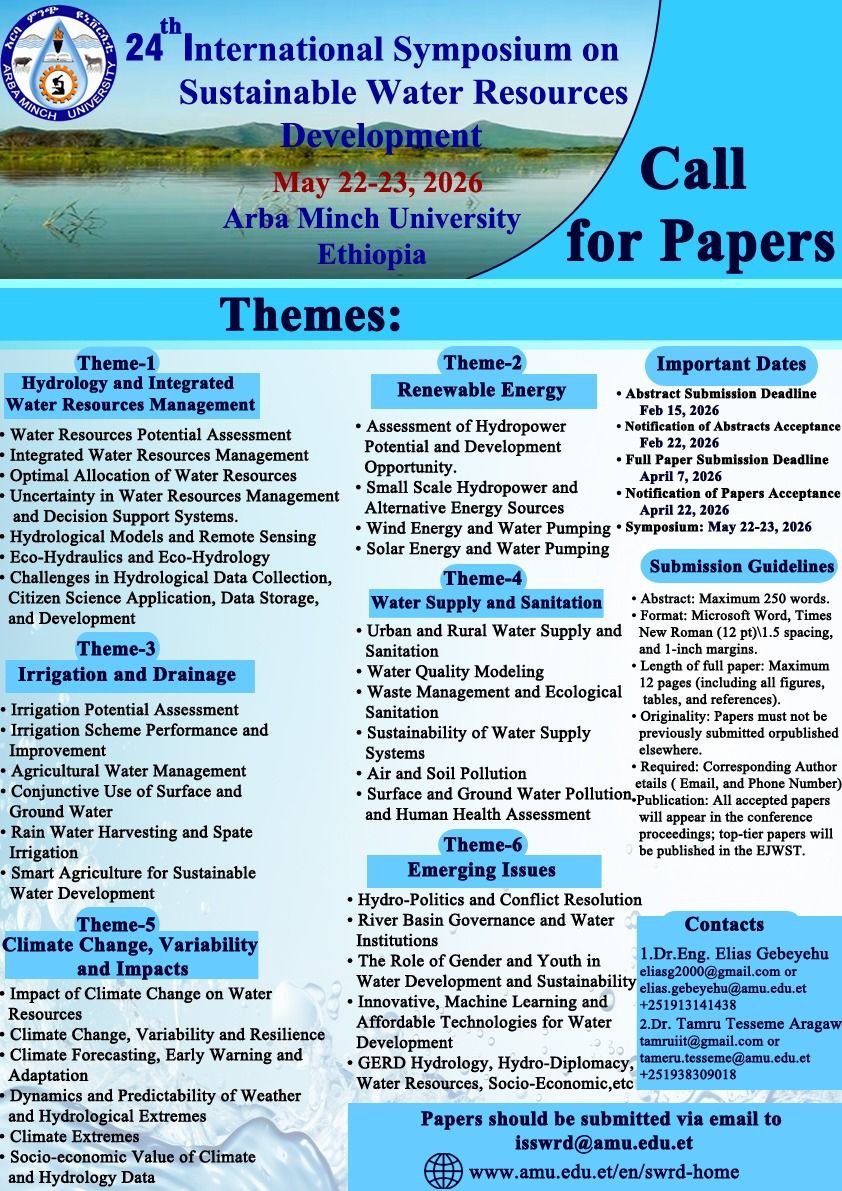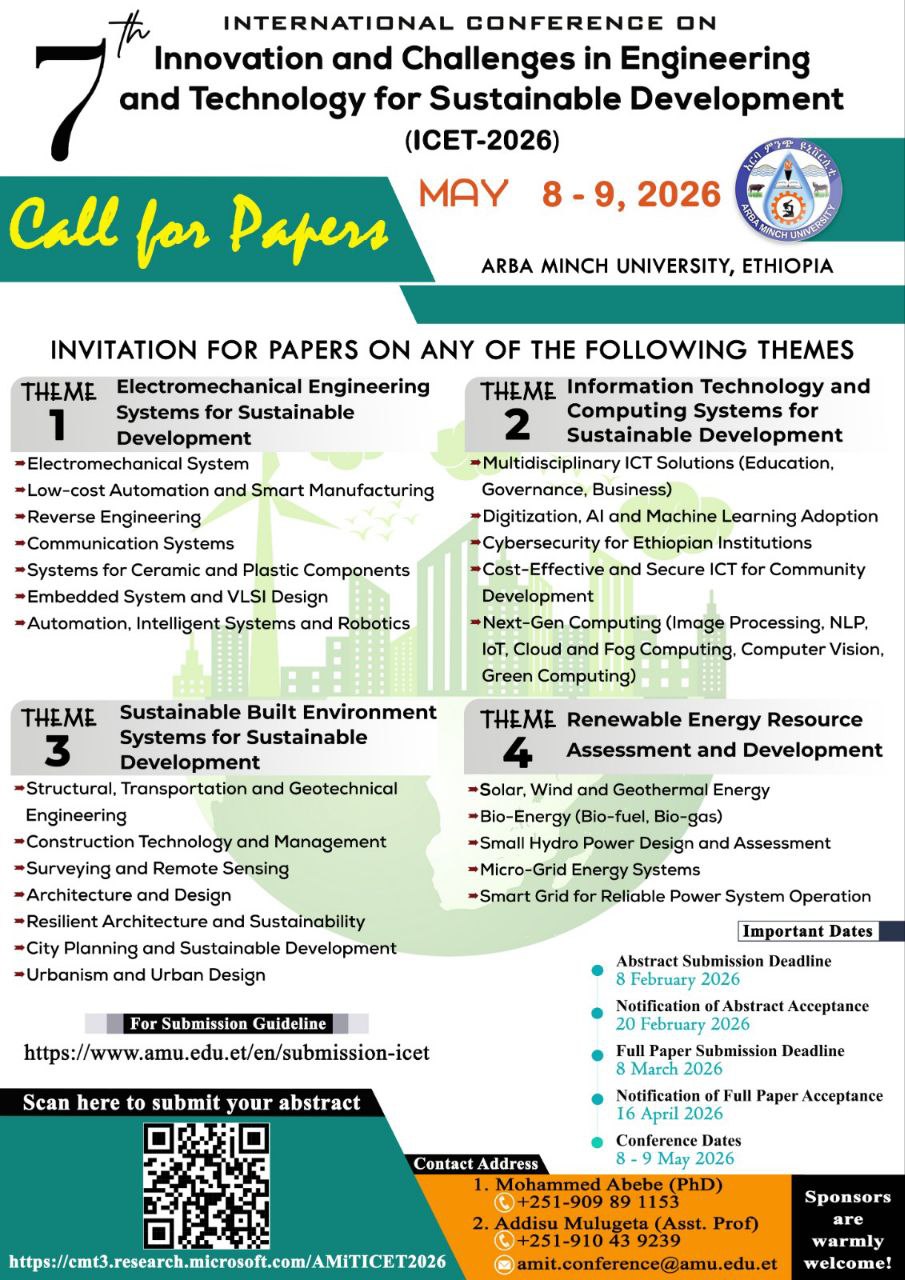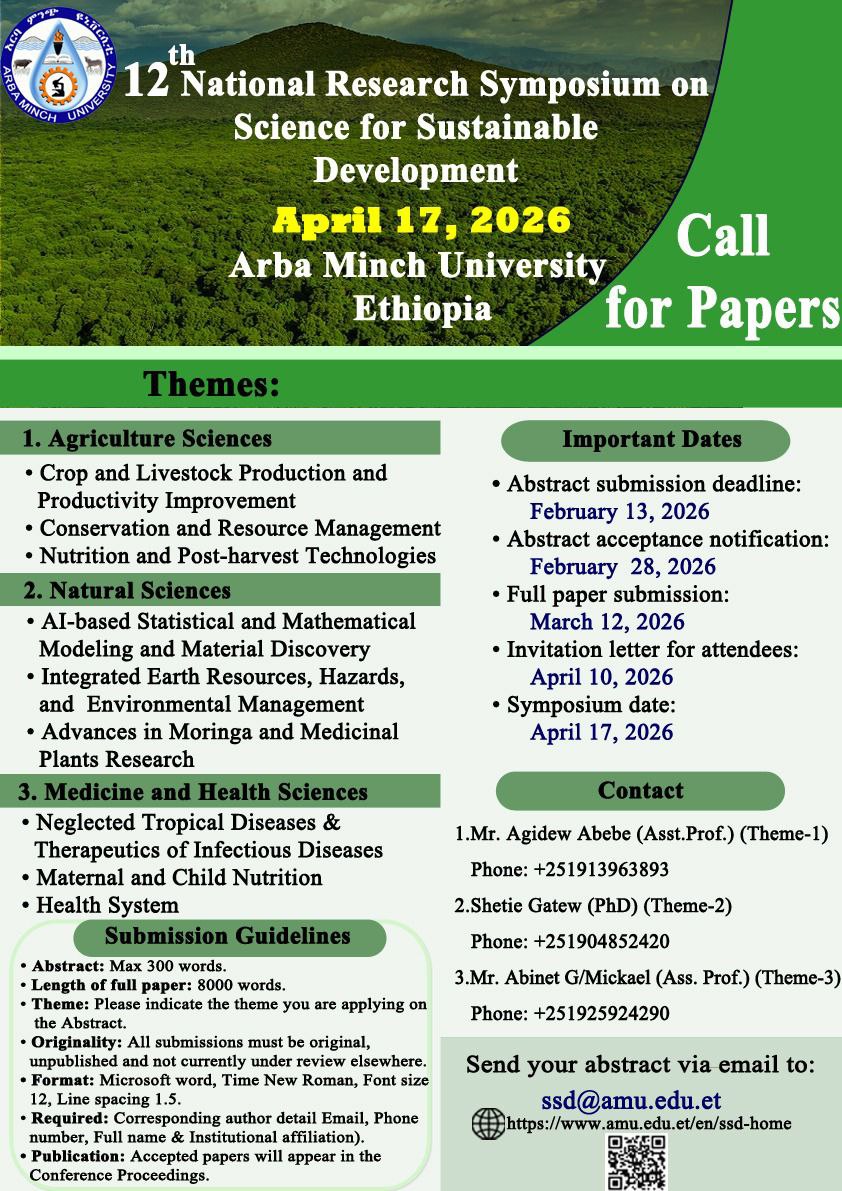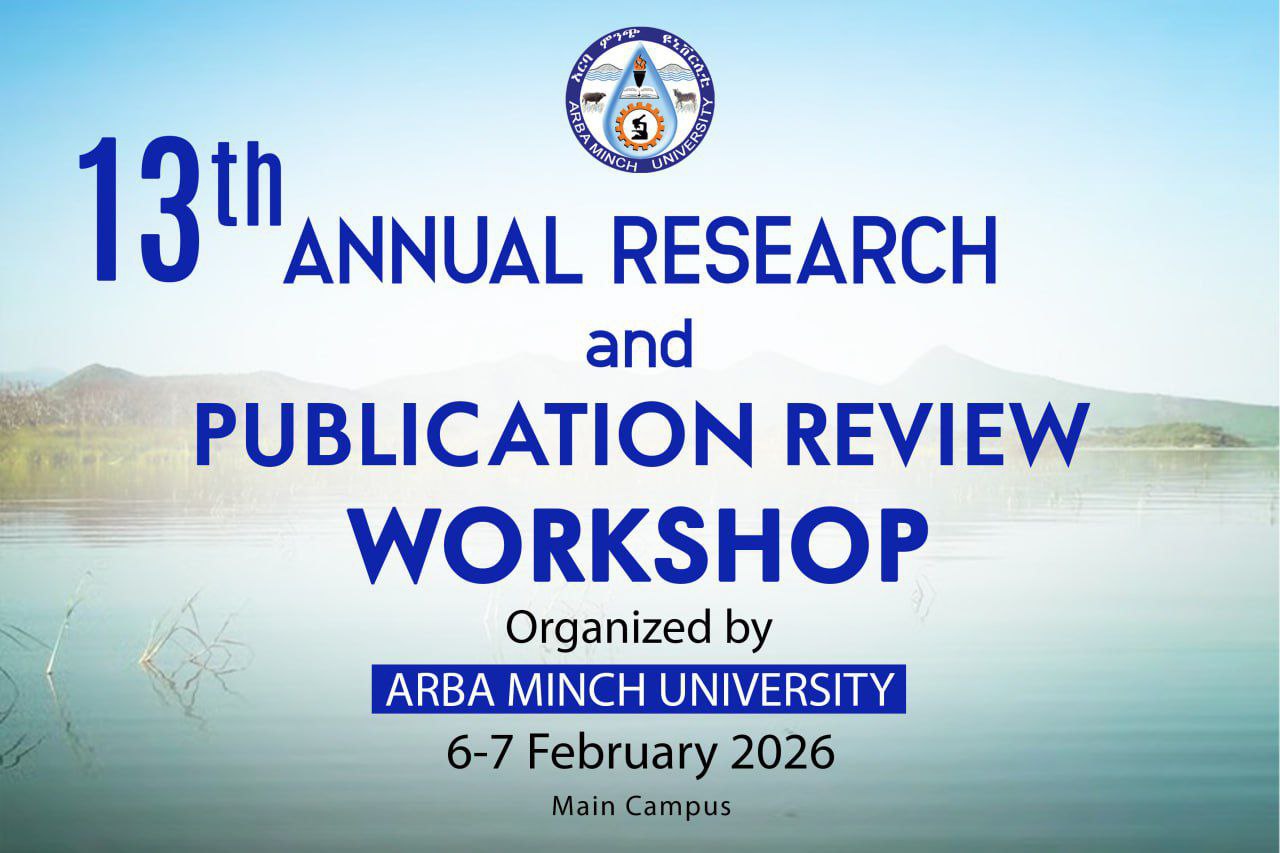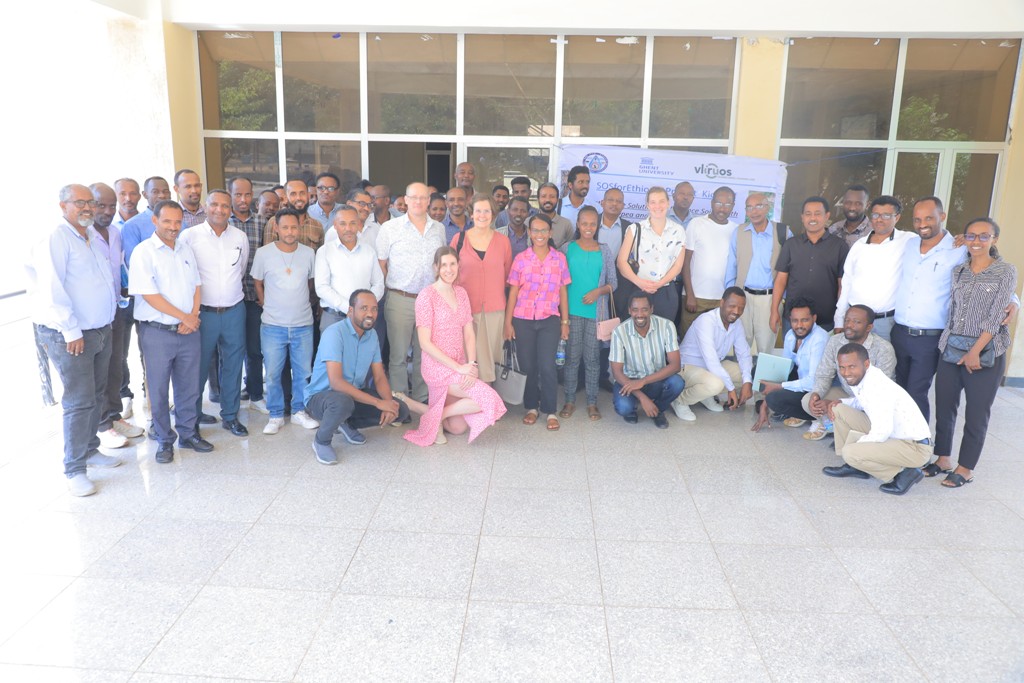Arba Minch University (AMU), Ghent University and Vliruos launch SOSforEthiopia Project titled “Sustainable Solutions to Enhance Soil Health and Cowpea and Soybean Productivity in Southern Ethiopia” on February 4/2025 at Abaya campus. The project duration will be five years and its allocated budget figures out €280‚000.00. Click here to see more photos.
At the project kick off opening ceremony, Teklu Wegayehu (PhD), VP for Research and Cooperation Office, said, collaboration leads to better outcomes by combining different perspectives, expertise, skills, ideas and resources. It also makes people feel more connected to their colleagues and the company, hence, the higher academic institutions should work with manufacturing industries, research institutions, governmental and non-governmental organizations both nationally and internationally to share knowledge, skills and resources to attain the common goals mutually, he noted. AMU is collaborating with more than 50 international institutions including Flemish universities under the umbrella of the Flemish Interuniversity Council (VLIR-UOS), RUNRES project funded by the Swiss Agency for Development and Cooperation, Malaria Project funded by the Norwegian Agency for Development Cooperation (NORAD) among others, he said. Our today’s collaborative project launch is also part of similar endeavors and it is so instrumental to AMU because AMU is striving to become an autonomous research university, he remarked.
Further explaining, he said, majority of Ethiopian farmers hold small scale farms; and they have several problems hindering their agricultural productivity due to poor soil fertility caused by erosion and nutrient depletion, limited access to improved seeds and fertilizers, and small landholdings. To maximize the region’s potential for food and feed crops, projects like SOSforEthiopia that enhance soil health and fertility are highly encouraged, he appreciated, to seek optimal indigenous symbiotic partners as bio-fertilizers to improve Soybean and Cowpea cultivation at smallholder farmers’ fields in southern Ethiopia.
Tewodros Berhanu (PhD), the dean of College of Natural and Computational Sciences, in his project kick off note, said soil health is the foundation of sustainable agriculture and it directly influences crop productivity, food security, and environmental sustainability. The collaboration between our institutions is a testament to our shared commitment to addressing the pressing challenges faced by farmers and agricultural systems in Southern Ethiopia, he remarked. By collaborating, we can leverage our collective expertise, resources, and innovative ideas to develop sustainable solutions that will have a meaningful impact, he said. Dr. Tewodros, listing some of the fundamental challenges today’s agriculture faces, noted that includes soil degradation, declining productivity and pressing need for sustainable agricultural practices.
Prof. Sofie Goormachtig, VIB PI/Principal Investigator, Faculty of Sciences Department of Plant Biotechnology and Bioinformatics (WE09) at Ghent University, said, Southern Ethiopia faces food insecurity due to poor soil health and harsh environmental conditions limiting crop production. Despite the region’s potential for food and feed crops, inadequate access to agricultural practices and fertilizers hampers exploitation; legume crops like soybean and cowpea enhance soil fertility through symbiosis with nitrogen fixing bacteria (rhizobia) and phosphate transferring arbuscular mycorrhizal fungi (AMF), she explained. SOSforEthiopia aims to seek optimal indigenous symbiotic partners (rhizobia and AMF) as bio-fertilizers to improve soybean and cowpea cultivation at smallholder farmers’ fields in southern Ethiopia, Prof. Sofie noted
Coordinator and PI of this project and researcher at AMU, Ashenafi Hailu (PhD), presenting a paper titled “Rhizobium diversity and inoculation practices in Southern Ethiopia” shared the participants about research out puts, experiences, farmers’ feedback, different field applications, rhizobium collection, evaluation tests and their importance in improving yield and yield parameters that enhance grain yields of soybean and other legume plants in the region. One of the objectives of this project is capacity building: training for PhD and MSc. students to have hands on practices on inoculants development, usage and application in farmers’ fields and train smallholders farmers on bio-fertilizers to improve soybean and cowpea cultivation at smallholder farmers’ fields in southern Ethiopia, He said.
Dr. Mekdes Orge presented the overview of SOSforEthiopia project goals, duration and budget and then discussion held on the overall project details of implementation.
An Executive Director for Research, Tesfaye Habtemariam (PhD), in his closing remarks, thanked all stakeholders and said the Belgian universities have been supporting 34 PhD students through IUC, 6 PhDs graduated through team projects; currently, we are running €12.5 million from Belgian government alone, he appreciated. We greatly honor the generous support from the universities and assured that our collaboration will definitely extend to other aspects, and continue to flourish.
AMU higher officials and staff, Arba Minch agricultural research center staff, a researcher from Jinka University, and experts from Gamo Zone, Gardula Zone, Konso Zone, Arri Zone (Jinka) Agricultural Bureau were in attendance.
Arba Minch University
The Center of Bright Future!
For more Information Follow us on:-
Website - https://www.amu.edu.et/
Telegram - https://t.me/arbaminch_university
Facebook - https://www.facebook.com/ArbaMinchUniversityccd/
YouTube - https://www.youtube.com/channel/UCOO_nclhMo8M3r74OyPBlVA
Public and International Relations Executive


